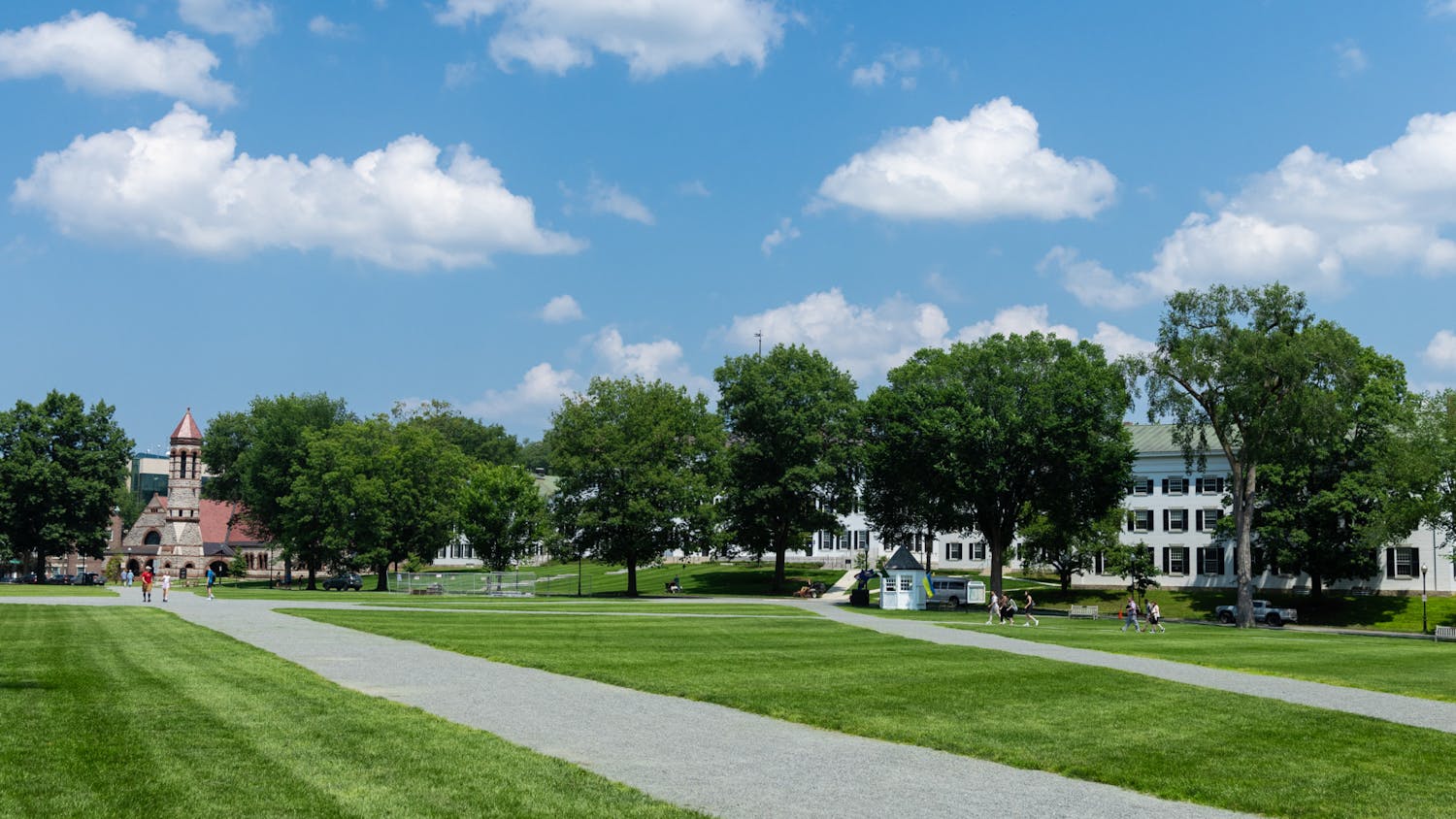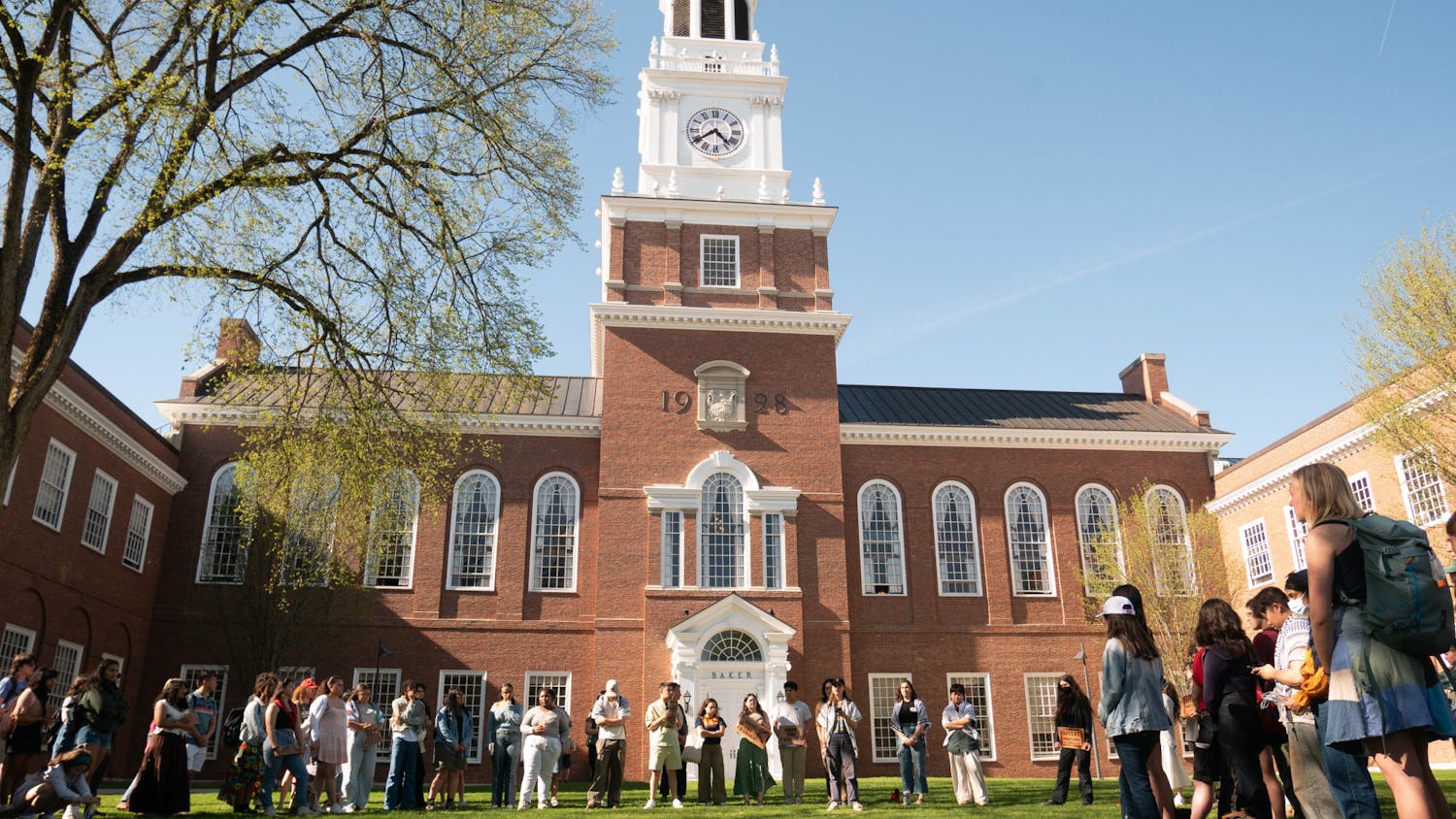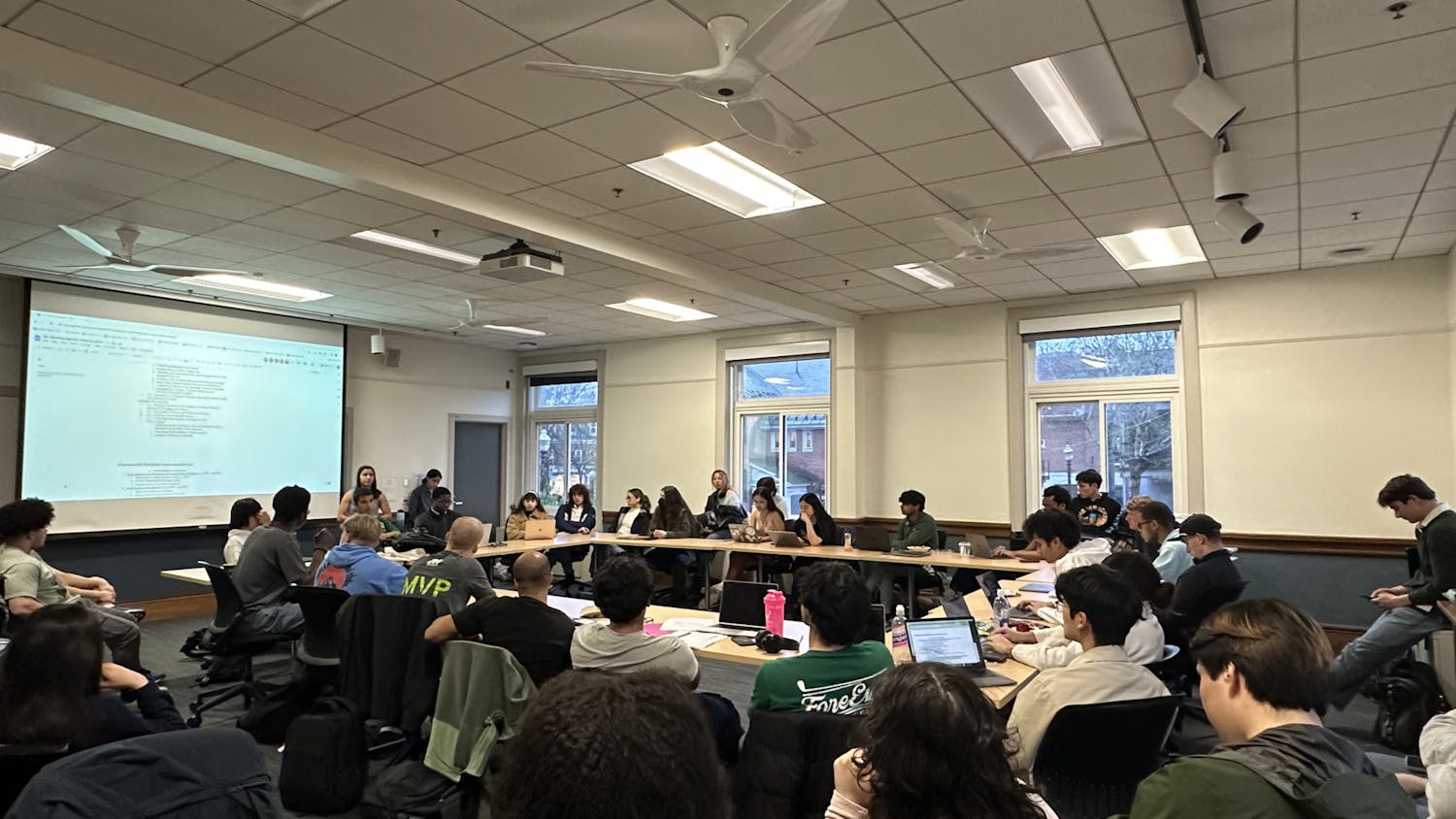UltraViolet, a women’s rights advocacy group, has launched a national campaign against sexual assault at Dartmouth that uses petitions and online advertisements to demand that the College take stronger action to combat the issue. The campaign began in March with an online petition that urged the College to include expulsion as a punishment for rape and block campus Internet access to a Bored at Baker post that targeted a female member of the Class of 2017. Over 50,000 people have signed the petition, and the group has around 550,000 members.
UltraViolet expanded the campaign to include online advertisements on Facebook and other websites, urging readers to learn more about sexual assault at Dartmouth and sign the petition.
The advertising campaign ran for about a week and particularly seeks to reach prospective students, UltraViolet campaign director Karin Roland said. Roland said UltraViolet is aware of the College’s new proposal -— which would expel students found guilty of sexual assault involving penetration, oral-genital contact or oral-anal contact after use of force, threat or purposeful incapacitation of a survivor, as well as students motivated by bias or with prior records of sexual assault who commit these acts — but will continue the campaign until concrete action is taken.
“We think prospective students have a right to know that this is a great school, but they’re dragging their feet on this issue and it is putting students at real risk,” she said.
Based on information from Facebook profiles and Internet searches, UltraViolet is targeting its advertisements at people who have listed an affiliation with or interest in Dartmouth or have visited the area, Roland said.
The advertisements, which have cost several thousand dollars so far, are funded by UltraViolet and members’ donations and will continue until at least the end of the college decision season, she said. If the organization feels it has more to gain by extending the campaign beyond the May 1 decision deadline, it will run advertisements with a new message, Roland added.
College spokesperson Justin Anderson said Dartmouth is aware of the campaign and has contacted the organization to correct inaccuracies.
“I think it is unfortunate that, in the ads and elsewhere, UltraViolet fails to acknowledge the actions that Dartmouth is taking, most notably the comprehensive policy proposal that will take effect in June that makes expulsion mandatory for the most egregious cases of sexual assault,” Anderson said.
The College has launched its own campaign in response. Advertisements highlight the College’s actions in the context of President Barack Obama’s call to institutions nationwide to protect students from sexual assault, he said.
“We have been very transparent with information on the website about our new policy,” dean of admissions and financial aid Maria Laskaris said. “I think they are unfairly representing Dartmouth and taking information that we have designed for prospective students and twisting it.”
The College’s Facebook campaign has drawn about 280,000 views, Anderson said, and over 30,000 have seen it in their Twitter feed. UltraViolet’s most recent numbers show that around 60,000 people have seen its advertisements, Roland said.
Last May, students filed a Clery Act complaint against the College, documenting violations of sexual assault, discrimination, hate crimes, bullying and hazing. The Clery Act, signed in 1990, requires institutions of higher education to disclose information regarding campus crime. The Department of Education also launched an unprompted investigation into Title IX compliance at the College.
College President Phil Hanlon and Dean of the College Charlotte Johnson released a proposal to reform the College’s sexual assault policy in early March, and opened it up to community comments until today. If the proposed policy is enacted, students found guilty of sexual assault involving penetration, oral-genital contact or oral-anal contact after use of force, threat or purposeful incapacitation of a survivor, as well as students motivated by bias or with prior records of sexual assault who commit these acts, would be expelled.
“It’s a great first step,” Roland said of the proposal. “But until they’re enacted and enforced it’s just lip service. As far as we’re concerned, a proposed change is not taking action — it’s a step toward that.”
Current students interviewed have noticed the online advertisements. Some said they were disappointed at how the College’s actions were cast by the campaign.
“Right now, it seems like the ads represent a very one-sided conversation that does not reflect the opinions of the entire student body,” Jane Rem ’17 said. “I think that it’s important for students who have had different experiences to speak out.”
Holli Weed ’14 said she was surprised that the campaign specifically chose to focus on the College.
“It strikes me as a bit strange that UltraViolet has chosen to single out Dartmouth’s campus,” she said. “Obviously, we have had several rather public incidents as of late, but just the same when you look at the sheer amount of resources that we have on this campus for survivors and the amount of education about sexual violence that we have for students, it’s not clear why UltraViolet would be concerning themselves with this campus.”
Kieran Sim ’17 said the advertisements upset him because sexual assault occurs at other universities, and Dartmouth seems to be taking the issue more seriously than other schools. Highlighting only Dartmouth, Sim said, is misleading.
While many prospective students interviewed said that they had heard about sexual assault at the College, 11 of 20 interviewed had not seen UltraViolet’s advertisements. Those who had voiced various opinions.
“The ads didn’t dissuade me,” said Matthew Goff, who was accepted into the Class of 2018 from Hanover. Though some students had voiced concern about sexual assault on the Class of 2018 Facebook page, Goff said, others have come to the defense of the College.
Monica Alvarez, a prospective member of the Class of 2018 , said she feels that Dartmouth is so well known that people will always find issues to talk about. She added that every school has problems and that having them be known publicly is better than hiding them.
Joanna Chung, a prospective student from New York, said she could see how the campaign could influence prospective students.
“I think it definitely adds a subconscious dislike for the school, if not an explicit defensive gut reaction against it,” Chung said. “However, if I was completely set on the school for other reasons, I don’t think the ads would change my decision.”
Roland noted that UltraViolet will continue to push the campaign forward until Dartmouth takes action to protect the student body from sexual assault that goes beyond releasing proposals for reform. The organization is looking into other forms of advertisements to use to reach prospective students and communities with information on sexual assault.
“We’re looking into key dates for the Dartmouth campus and whether it’s necessary to up the ante with some sort of physical presence,” Roland said. “We’re also looking into how to bring the energy around the Dartmouth campaign to other schools.”



